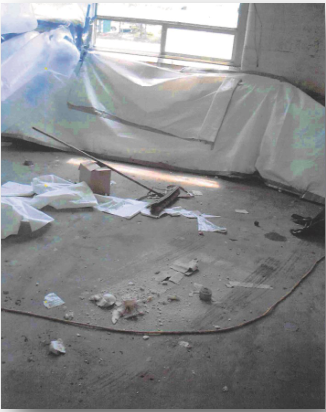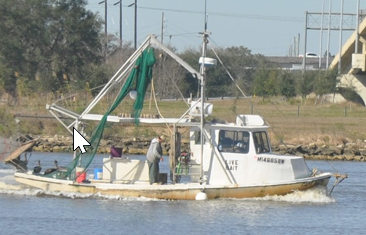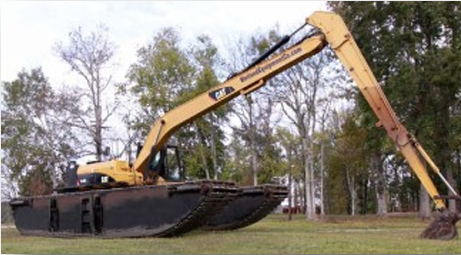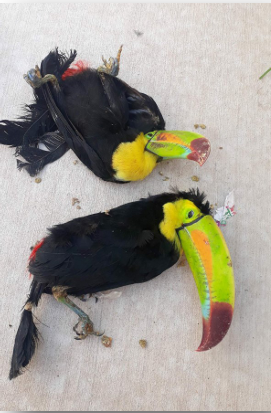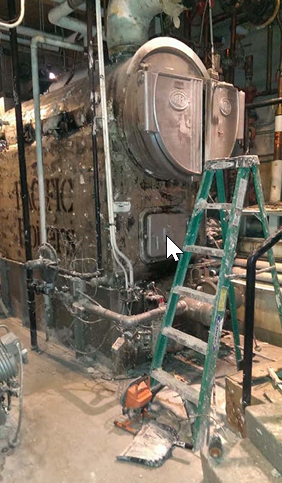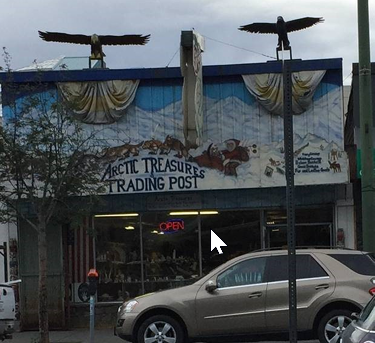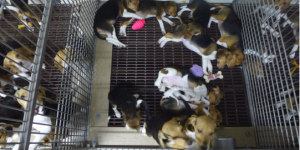Blog Post
Environmental Crimes Bulletin March 2021
In this issue:
- United States v. Gear Box Z, Inc., No. 20-CV-08003 (D. Ariz.)
- United States v. Lucero, 2021 U.S. App. LEXIS 6327 (9th Cir. Mar. 4, 2021)
- Nydia Hernandez-Gotay et al. v. U.S. Dep’t of Agric., (1st Cir. Jan. 2021). Asociacion Cultural y Deportiva del Gallo Fino de Pelea et al. v. U.S. Dep’t of Agric., (1st Cir. 2021)
- United States v. Wyatt A. Travnichek, No. 5:21-CR-40029 (D. Kans.), AUSA Christine Kenney
- United States v. Stuart Conklin, No. 1:21-mj-00329 (E.D.N.Y.), AUSA Turner Buford
- United States v. Gunay Yakup, No. 1:21-CR00072 (N.D.N.Y.), ECS Senior Trial Attorney Todd Gleason, ECS Trial Attorney Gary Donner, and ECS Paralegal Chloe Harris
- United States v. Arturo Fuentes, No. 2:20-CR-03729 (S.D. Calif.), ECS Trial Attorney Stephen DaPonte and AUSA Melanie Pierson
- United States v. Joshua J. Moak, No. 1:21-CR-00025 (S.D. Miss.), AUSA Gaines Cleveland
- United States v. Rosa Moreno, No. 3:20-CR-03793 (S.D. Calif.), ECS Trial Attorney Stephen DaPonte and AUSA Melanie Pierson
- United States v. Aaron Rochester, No. 5:18-CR-04073 (N.D. Iowa), AUSA Shawn Wehde
- United States v. James Tassin, No. 2:21-CR-00008 (E.D. La.), AUSA Nicholas D. Moses
- United States v. Jose Maxines et al., No. 3:21-CR-00330 (S.D. Calif.), ECS Trial Attorney Stephen DaPonte and AUSA Melanie Pierso
- United States v. Tanner J. Sik et al., No. 20-mj-00752 (D. Minn.), AUSA Emily Polachek
- United States v. Stephan T. Reisinger, 1:19-CR-00240 (D.N.D.), ECS Senior Attorney Chris Costantini, AUSA Delorme, and former Law Clerk Fred Ingram
- United States v. Beatriz Santillan, No. 20-CR-02178 (S.D. Calif.), ECS Trial Attorney Stephen DaPonte and AUSA Melanie Pierson
- United States v. Alejandro Carrillo, No. 3:19-CR03932 (W.D. Tex.), ECS Trial Attorneys Gary Donner and Mary Dee Carraway, and ECS Paralegal John Taylor
- United States v. J.P. Lillis Enterprises, Inc. d/b/a Cape Cod Ice, No. 1:20-CR00115 (D.R.I.), AUSA Terrence P. Donnelly and RCEC Dianne Chabot
- United States v. Yoo Jin Management et al., No. 3:19-CR-00107 (D. Alaska), AUSA Charisse Arce and RCEC Karla Perrin
- United States v. 4 Bros. Dairy, et al., No. 1:20-CR-00216 (D. Idaho), AUSAs Joshua Hurwitt and Sean Mazorol
- United States v. Lee J. Screnock, No. 3:19CR-00038 (D. Alaska), AUSA Adam Alexander
- United States v. Antonio Dejesus Arellano, No. 3:20-CR-02433 (S.D. Calif.), ECS Trial Attorney Stephen DaPonte and AUSA Melanie Pierson
- United States v. Jeffrey Styron, No. 4:20-CR-00070 (E.D.N.C.), ECS Trial Attorneys Gary Donner and Banu Rangarajan
- United States v. Indian Ridge Seafood Company, LLC, No. 2:19-CR-00247 (E.D. La.), AUSA Julia Evans
- United States v. Andrew K. Ecklund, No. 5:19-CR-00782 (N.D. Ohio), AUSA Brad Beeson
- United States v. Nolan Hueftle, No. 8:20-CR-00279 (D. Neb.), AUSA Donald Kleine
- United States v. Martin Eldridge, et al., Nos. 2:19-CR-00252, 2:20-CR-00014 (S.D. Ohio), ECS Trial Attorney Adam Cullman, and AUSA Mike Marous
- United States v. Joshua Lucas, No. 5:20-CR-00080 (W.D. Okla.), ECS Trial Attorney Rich Powers, and AUSA Charles Brown
United States v. Gear Box Z, Inc., No. 20-CV-08003 (D. Ariz.)
On March 18, 2021, the district court granted the government’s motion for a preliminary injunction, enjoining the Defendant from selling certain aftermarket defeat devices.
Gear Box Z, Inc., an Arizona corporation, manufactures and sells aftermarket products for the modification of diesel engines on motor vehicles including Ford, General Motors, and Dodge trucks. The Environmental Protection Agency (EPA) claims that nearly all of the Defendant’s products, including hardware and software products, are defeat devices. These products defeat emissions controls and violate the Clean Air Act (CAA).
The hardware devices include block plates, delete pipes, and diesel particulate filter emulators. Installation of these hardware products requires new software, which Defendant also sells, to “tune” the vehicle so that it functions without the original emissions controls. Consequently, the products enable a driver to obtain enhanced vehicle performance through greater power and fuel economy, but also cause the release of excess emissions, resulting in harm to human health and the environment.
After the parties failed to resolve a Notice of Violation outside of court, the government filed suit and, subsequently, a Motion for Preliminary Injunction seeking to enjoin the sale of violative devices.
In granting the government’s motion, the district court first found that the government was likely to succeed on the merits to show the Defendant was violating the CAA. The Defendant did not explicitly refute evidence submitted by the government, but instead argued (1) that its products fell under the CAA’s “maintenance exception,” and (2) that because the Defendant did not know how customers used the devices, the government could not prove that the Defendant had knowledge that its products were sold as defeat devices. The district court rejected both arguments.
The CAA’s“ maintenance exception” (42 U.S.C. § 7522(a)(5)), exempts certain devices that are used for the repair of a motor vehicle. The district court highlighted that the Defendant pointed to no evidence that its products were designed “for the purpose of repair or replacement” of a device in compliance with the CAA’s regulations. Additionally, although the installation of the Defendant’s products can be reversed, the company does not know what its customers ultimately do with its products.
The government produced evidence that the design of Defendant’s products indicates that their installation is not intended to be reversed, and Defendant offered no evidence to rebut this contention. Furthermore, the Defendant failed to produce evidence that customers used its products for short-term maintenance and repair.
Regarding knowledge, the Defendant argued that the government, as required by the CAA, could not show that it “knows or should know” that its products are “being offered for sale or installed” as defeat devices, . The court rejected this argument, because Defendant’s own statements in response to customer questions (and published in product manuals and advertisements) demonstrate that company knows its products are installed as defeat devices.
In considering irreparable harm, the court ruled “the irreparable harm at issue is obvious” since emissions of harmful pollutants damage human health and the environment.
Finally, the court ruled that the balance of equities tips in the government’s favor and that a preliminary injunction is in the public interest. Here, that involves balancing the irreparable harm to human health and the environment caused by defeat devices with the financial harm to the Defendant. The court found that potential financial loss to the company if the sale of its products is enjoined did not outweigh the harm to human health and the environment and the public interest in stopping the Defendant’s acts.
Finding that the government satisfied all factors for a preliminary injunction, the court ordered that the Defendant was enjoined from “(1) selling, offering for sale, or transferring any products or components listed in its Order, or any materially similar products; and (2) selling, offering for sale, or transferring any intellectual property associated with the products listed in its Order, or any materially similar products.”
United States v. Lucero, 2021 U.S. App. LEXIS 6327 (9th Cir. Mar. 4, 2021)
On March 4, 2021, the Ninth Circuit issued two mostly-favorable decisions in this Clean Water Act (CWA) criminal prosecution, rejecting nearly all of the defendant’s arguments on appeal, but reversing and remanding for a new trial due to an erroneous jury instruction.
A jury convicted Lucero on multiple counts of knowingly violating the CWA by discharging fill material into wetlands on property (which he did not own) adjacent to San Francisco Bay. Lucero defended the charges by denying the presence of wetlands and by claiming that he believed the fill material was deposited onto dry land. In a for-publication opinion, the Ninth Circuit held: (1) that the relevant “waters of the United States” (WOTUS) regulation was not unconstitutionally vague, (2) that the 2020 WOTUS rule did not apply retroactively to the 2014 offense, and (3) that the United States did not need to prove Lucero’s knowledge that the relevant waters were WOTUS.
The court reasoned that the requirement to prove WOTUS is a purely “jurisdictional” element and thus not part of the necessary mens rea for the offense. But the court reversed and remanded for a new trial because the jury instruction did not specifically require the United States to prove Lucero’s knowledge of a “discharge into water” (which is a required element) and because the error was not harmless.
Judge Bade filed a partial dissent, arguing that the United States should be required to prove knowledge of WOTUS, because the distinction between “waters” and WOTUS is not merely jurisdictional, but instead (in Judge Bode’s view) goes to whether the conduct is criminal. Responding to an argument in Judge Bade’s dissent, the majority noted that nothing about its knowing discharge “into water” holding foreclosed treating “arroyos, areas adjacent to water, or other dry areas” as “water” for purposes of the CWA’s definitions. How that will play out in particular cases involving temporarily dry areas remains to be seen. Environmental Crimes Section attorneys are always available to consult on this and other CWA jury instruction issues.
In a separate not-for-publication memorandum decision, the Ninth Circuit rejected Lucero’s arguments that the district court erred: (1) in allowing expert testimony on the presence of WOTUS; (2) excluding an out-of-court declaration by an Environmental Protection Agency agent; and (3) rejecting an alternate jury instruction proposed by Lucero.
Nydia Hernandez-Gotay et al. v. U.S. Dep’t of Agric., (1st Cir. Jan. 2021). Asociacion Cultural y Deportiva del Gallo Fino de Pelea et al. v. U.S. Dep’t of Agric., (1st Cir. 2021)
On January 14, 2021, the First Circuit Court of Appeals affirmed the district court's decision holding that “Section 12616” is a valid exercise of Congress's Commerce Clause power and does not violate plaintiffs' individual rights.
In 1976, Congress amended the Animal Welfare Act (“AWA”) to ban “animal fighting ventures,” defined as “any event, in or affecting interstate or foreign commerce, that involves a fight conducted . . . between at least 2 animals for the purposes of sport, wagering, or entertainment.” 7 U.S.C. § 2156(f)(1). Congress subsequently amended the animal fighting venture prohibition several more times, and in 2018, it passed Section 12616 of the Agricultural Improvement Act of 2018 (“Section 12616”). Section 12616 removed the remaining exception that allowed individuals to “sponsor or exhibit” cocks in fights if allowed under local law and if they lacked knowledge that the cocks were moved in interstate commerce for purposes of cockfighting. Pub. L. No. 115-334, § 12616, 132 Stat. 4490, 5015-16 (codified as amended at 7 U.S.C. § 2156).
In these consolidated cases, the plaintiffs challenged the constitutionality of Section 12616, which bans the “sponsor[ship]” and “exhibit[ion]” of cockfighting matches in Puerto Rico. Id. Plaintiffs argued that the law exceeded Congress’s Commerce and Territorial Clause powers and violated their First Amendment and Due Process Rights. The United States Court of Appeals for the First Circuit affirmed the district court’s decision and held that Section 12616 is a valid exercise of Congress’s Commerce Clause power and does not violate plaintiffs’ individual rights.
To begin, the Commerce Clause empowers Congress to regulate “activities that substantially affect interstate commerce.” United States v. Lopez, 514 U.S. 549, 559 (1995). In this case, the plaintiffs’ sponsorship and exhibition of cockfights for profit is clearly economic and commercial, and as an economic “class of activities,” has a substantial effect on interstate commerce. Additionally, multiple congressional findings underscore the interstate commercial impact of cockfighting. Namely, the House Report discussing the 1976 amendments found that animal fighting ventures “attract fighting animals and spectators from numerous states, are or have been advertised in print media of nationwide circulation, and often involve gambling and other criminal activities.” United States v. Gilbert, 677 F.3d 613, 625 (4th Cir. 2012). Due to these factors and other considerations, the First Circuit held that Section 12616 is a legitimate exercise of the Commerce Clause power.
Next, the First Circuit rejected the plaintiffs’ argument that Section 12616 infringes on their First Amendment freedoms of speech and association, because cockfighting in Puerto Rico is expressive conduct entitled to First Amendment protection. The Court explained that it looks at two factors to determine whether conduct deserves First Amendment protection. Clark v. Cmty. for Creative Non-Violence, 468 U.S. 288, 294 (1984). First, the conduct must intend to be communicative. Id. Second, the conduct must reasonably be understood by the viewer to be communicative. Id. Here, the plaintiffs’ conduct was not intended to be communicative and could not reasonably be understood by the viewer to be communicative. Specifically, the plaintiffs’ assertion that cockfighting “express[es] their culture and deeply rooted sense of self-determination” was insufficient to show that their sponsorship or exhibition of cockfighting would reasonably be understood by the viewer to be communicative. Id. Moreover, the plaintiffs’ First Amendment right to peaceably assemble was not infringed because Section 12616’s criminalization of cockfighting in Puerto Rico does not deter or restrict them from assembling to discuss and express their views regarding cockfighting.
Finally, the First Circuit concluded that the plaintiffs did not show that they had any cognizable liberty interest which was being infringed by Section 12616’s prohibitions. Consequently, the Court rejected their procedural and substantive Due Process challenges, and affirmed the district court’s judgment upholding the legality of Section 12616.
United States v. Wyatt A. Travnichek, No. 5:21-CR-40029 (D. Kans.), AUSA Christine Kenney
On March 31, 2021, prosecutors charged Wyatt A. Travnichek with violating the Safe Drinking Water Act for tampering with a public water system and damaging a protected computer during unauthorized access (42 U.S.C. § 300i-1(a); 18 U.S.C. § 1030 (a)(5)(B)).
Travnichek worked for the Post Rock Rural Water District (Post Rock). Post Rock served as a public water system for consumers in eight Kansas counties. As part of his job responsibilities, Travnichek periodically logged into the Post Rock computer system to monitor the plant after hours.
On March 27, 2019, Travnichek hacked into the Ellsworth County Rural Water District’s protected computer system without authorization. He then performed activities that shut down cleaning and disinfecting processes at the facility.
The U.S. Environmental Protection Agency Criminal Investigation Division conducted the investigation.
United States v. Stuart Conklin, No. 1:21-mj-00329 (E.D.N.Y.), AUSA Turner Buford
On March 16, 2021, prosecutors charged Stuart Conklin with making a false entry in a railroad inspection report (49 U.S.C. § 21311). Employed as a Signalman for Long Island Rail Road (LIRR), Conklin’s responsibilities included performing regular inspections of rail bonds. Rail bonds are electronic jumpers around joints in the rails of a railroad track to ensure continuity of conductivity for signal currents. Conklin submitted a report confirming he inspected a specific rail bond on April 26, 2019, and that the bond had passed inspection. Video footage, however, showed that Conklin failed to inspect the bond.
In the early morning hours of May 25, 2019, a westbound LIRR train collided with an eastbound train that had pulled onto a sidetrack to permit the westbound train to pass. LIRR’s internal investigation determined that the rail bond Conklin said he had inspected was broken and had caused the derailment. Conklin resigned following the derailment. The U.S. Department of Transportation Office of Inspector General, and the Inspector General for the Metropolitan Transportation Authority conducted the investigation.
United States v. Gunay Yakup, No. 1:21-CR00072 (N.D.N.Y.), ECS Senior Trial Attorney Todd Gleason, ECS Trial Attorney Gary Donner, and ECS Paralegal Chloe Harris
On March 26, 2021, Gunay Yakup pleaded guilty to conspiring to violate the Clean Air Act for his involvement in an illegal asbestos abatement project (18 U.S.C. § 371). Sentencing is scheduled for July 27, 2021.
During the summer of 2016, Yakup helped remove asbestos from a former IBM site in Kingston, New York. The facility contained more than 400,000 square feet of regulated asbestos-containing material (RACM), as well as an additional 6,000 linear feet of RACM pipe wrap. An asbestos abatement company hired Yakup, due to his expertise, to supervise the project. As a result from co-conspirators pressuring Yakup to expedite the asbestos removal, he and his crew improperly removed substantial amounts of RACM including tearing out dry material producing visible emissions. They also stored bulk quantities of RACM waste on site in open containers, and allowed RACM to be released to outside the building.
Inspectors halted the operation in August 2016, and estimated clean up costs will be in the millions. The U.S. Environmental Protection agency Criminal Investigation Division and the New York Departments of Labor and Environmental Conservation conducted the investigation.
United States v. Arturo Fuentes, No. 2:20-CR-03729 (S.D. Calif.), ECS Trial Attorney Stephen DaPonte and AUSA Melanie Pierson
On March 26, 2021, Arturo Fuentes pleaded guilty to smuggling (18 U.S.C. § 545). Authorities apprehended Fuentes in October 2002, as he attempted to enter the United States with 50 one-liter bottles of Bovitraz, illegal Mexican pesticides. Sentencing is scheduled for June 25, 2021.
Those involved in clandestine marijuana grows use illegal pesticides to cultivate unregulated marijuana on both public and private land in the United States. The U.S. Environmental Protection Agency Criminal Investigation Division and Homeland Security Investigations conducted the investigation.
United States v. Joshua J. Moak, No. 1:21-CR-00025 (S.D. Miss.), AUSA Gaines Cleveland
On March 25, 2021, Joshua J. Moak pleaded guilty to violating the Lacey Act for selling live shrimp and minnows to bait shop operators in Alabama and Florida (16 U.S.C. §§ 3372(a)(2)(A), 3373(d)(1)). Sentencing is scheduled for June 24, 2021.
Moak operated a business known as “Moak’s Minnows.” Between August 2015 and March 2019, Moak caught bait in Mississippi waters and transported it to out-of-state bait shop operators without possessing a license or otherwise complying with Mississippi law.
The National Oceanic and Atmospheric Administration Office of Law Enforcement and the Mississippi Department of Marine Resources conducted the investigation.
United States v. Rosa Moreno, No. 3:20-CR-03793 (S.D. Calif.), ECS Trial Attorney Stephen DaPonte and AUSA Melanie Pierson
On March 24, 2021, Rosa Moreno pleaded guilty to conspiracy (18 U.S.C. § 371). Authorities apprehended Moreno in November 2020 as she attempted to enter the United States with 24 bottles of Metaldane 600 in her vehicle. Sentencing is scheduled for June 17, 2021.
Those involved in clandestine marijuana grows use illegal pesticides to cultivate unregulated marijuana on both public and private land in the United States. The U.S. Environmental Protection Agency Criminal Investigation Division and Homeland Security Investigations conducted the investigation.
United States v. Aaron Rochester, No. 5:18-CR-04073 (N.D. Iowa), AUSA Shawn Wehde
On March 19, 2021, Aaron Rochester pleaded guilty to illegally storing and transporting hazardous waste (42 U.S.C. § 6928(d)(2)(A)).
Rochester owned and operated a company called Recycletronics. Between June 2015 and January 2017, he illegally stored and transported hazardous waste, namely CRTs (cathode ray tubes) and leaded glass from televisions and computers at various facilities in and around Sioux City, Iowa. The U.S. Environmental Protection Agency Criminal Investigation Division conducted the investigation.
United States v. James Tassin, No. 2:21-CR-00008 (E.D. La.), AUSA Nicholas D. Moses
On March 18, 2021, James Tassin pleaded guilty to violating the Clean Water Act for causing an oil spill (33 U.S.C. §§ 1319(c)(1)(A), 1321 (b) (3)). Sentencing is scheduled for June 22, 2021.
On September 5, 2016, Tassin negligently discharged 6,000 gallons of oil into Bay Long near the Chenier Ronquille barrier island, east of Grand Isle. The spill took place after Tassin’s supervisors instructed him to perform unauthorized digging with a marsh buggy near a pipeline, without alerting NOAA or the pipeline company. After digging for multiple days, Tassin removed the mud cover from the top of the underwater pipeline before eventually striking it, causing it to rupture.
The U.S. Environmental Protection Agency Criminal Investigation Division, the Department of Transportation Office of Inspector General, and the Department of Commerce Office of Inspector General conducted the investigation.
United States v. Jose Maxines et al., No. 3:21-CR-00330 (S.D. Calif.), ECS Trial Attorney Stephen DaPonte and AUSA Melanie Pierson
On March 18, 2021, Jose Maxines pleaded guilty to conspiracy and Heather Ramirez pleaded guilty to violating the Federal Insecticide, Fungicide, and Rodenticide Act, for attempting to smuggle illegal Mexican pesticides into the United States (18 U.S.C. § 371; 7 U.S.C §§ 136a (1)(A), 136l(b)(2)). Ramirez is scheduled for sentencing on May 12, 2021, and Maxines is set for July 6, 2021.
Authorities apprehended the defendants in January 2021 as they crossed the border with 72 bottles of Metaldane in their vehicle. Those involved in clandestine marijuana grows use illegal pesticides to cultivate unregulated marijuana on both public and private land in the United States. The U.S. Environmental Protection Agency Criminal Investigation Division and Homeland Security Investigations conducted the investigation.
United States v. Tanner J. Sik et al., No. 20-mj-00752 (D. Minn.), AUSA Emily Polachek
On March 9, 2021, Tanner J. Sik and Eric J. Weckwerth-Pineda pleaded guilty to violating the Clean Water Act for negligently discharging a pollutant (33 U.S.C. §§ 1311(a), 1319(c)(1)(A)).
On April 24, 2019, Sik and Weckwerth-Pineda took weapons to a bridge that spans a dam in Lyon County, Minnesota. The dam controls the outflow of water from Cottonwood Lake to a tributary of the Minnesota River via a creek known as Judicial Ditch 24 (a federally-regulated waterway). From the bridge, the defendants shot at and punctured part of an oil pipeline carrying diesel fuel, “just for fun.” Pipeline owner Magellan Midstream Partners, L.P., estimated that close to 4,000 gallons of fuel spilled into the Ditch and the Yellow Medicine River, causing approximately $1.1 million in clean up and repair costs.
The Department of Transportation Office of Inspector General and the U.S. Environmental Protection Agency Criminal Investigation Division conducted the investigation, with assistance from the Pipeline and Hazardous Materials Safety Administration.
United States v. Stephan T. Reisinger, 1:19-CR-00240 (D.N.D.), ECS Senior Attorney Chris Costantini, AUSA Delorme, and former Law Clerk Fred Ingram
On March 8, 2021, Stephan T. Reisinger pleaded guilty to obstructing an Occupational Safety and Healthy Administration (OSHA) proceeding into the death of an oilfield worker in 2014 (18 U.S.C. § 1505). Sentencing is scheduled for June 9, 2021.
Reisinger worked as a Maintenance Manager at Nabors Completion and Production Services Company (NCPS) at its Williston, North Dakota facility. He supervised approximately 40 employees, including Dustin Payne.
On October 3, 2014, Payne welded on an uncleaned tanker trailer that previously carried “produced water,” a liquid waste generated by oil wells containing flammable chemicals and explosive vapor residue. After the tank exploded, Payne died five days later from his injuries.
When questioned by OSHA, Reisinger falsely stated that he "did not" know that welding on produced water trailer tanks was hazardous, and that he thought the tanks held “just water.”
C&J Well Services, the corporate successor to NCPS, previously pleaded guilty to charges related to Payne’s death. A court sentenced the company in August 2019, to pay $2.1 million in fines and restitution.
The Occupational Safety and Health Administration, the U.S. Environmental Protection Agency Criminal Investigation Division, and the U.S. Department of Transportation Office of the Inspector General, conducted the investigation, with assistance from the Bureau of Alcohol, Tobacco, Firearms, and Explosives.
United States v. Beatriz Santillan, No. 20-CR-02178 (S.D. Calif.), ECS Trial Attorney Stephen DaPonte and AUSA Melanie Pierson
On March 26, 2021, a court sentenced Beatriz Santillan to 70 days’ incarceration for smuggling illegal Mexican pesticides into the United States (18 U.S.C. § 545). Santillan also will pay $20,079 in restitution to cover the cost to dispose of the pesticides.
Authorities apprehended Santillan in March 2020, as she drove into the Otay Mesa port of entry. After denying that she had anything to declare, officers searched her car and discovered bottles and containers of Qufuran, Metaldane, Bayfolan, Biomac, Ridomil Gold, Rodentox, and Fosfuro de Zinc concealed under the seats.
Those involved in clandestine marijuana grows use illegal pesticides to cultivate unregulated marijuana on both public and private land in the United States. The U.S. Environmental Protection Agency Criminal Investigation Division and Homeland Security Investigations conducted the investigation.
United States v. Alejandro Carrillo, No. 3:19-CR03932 (W.D. Tex.), ECS Trial Attorneys Gary Donner and Mary Dee Carraway, and ECS Paralegal John Taylor
On March 25, 2021, a court sentenced Alejandro Carrillo to 20 months’ incarceration, followed by two years’ supervised release for conspiring to smuggle and traffic wildlife (18 U.S.C. §§ 371, 554). Carrillo also will pay a $2,000 fine.
Between 2015 and December 2019, Carrillo acted as the middleman in a wildlife trafficking ring that smuggled hundreds of species of wildlife from Mexico into the United States. Suppliers based in Mexico sold protected species of reptiles, amphibians, and birds to customers in the United States. Carrillo transported the wildlife across the border to ship to customers. He charged a “crossing-fee,” based on the number and size of animals he transported, many of which are protected. Suppliers and customers paid Carrillo more wildlife valued at more than $3,500,000.
Law enforcement apprehended Carrillo as part of Operation Bale Out, an ongoing effort by the U.S. Fish and Wildlife Service to detect, deter, and prosecute those engaged in the illegal trafficking of protected species. A “bale” (or a group of turtles) was the name given to used to identify the operation due to the numerous species of turtles trafficked by Carrillo and his co-conspirators.
On the day of Carrillo’s arrest, agents simultaneously executed four search warrants, including one at Carrillo’s residence. They executed the others at locations at residences of U.S.-based customers who purchased wildlife from Mexican suppliers for years.
The U.S. Fish and Wildlife Service conducted the investigation.
United States v. J.P. Lillis Enterprises, Inc. d/b/a Cape Cod Ice, No. 1:20-CR00115 (D.R.I.), AUSA Terrence P. Donnelly and RCEC Dianne Chabot
On March 21, 2021, a court sentenced J.P. Lillis Enterprises, Inc., D/B/A Cape Cod Ice (CCI), to pay a $90,000 fine, and complete a three-year term of probation. Within 90 days, the company shall engage a qualified independent ammonia refrigeration consultant to conduct an audit that (1) evaluates Cape Cod Ice’s compliance with the Clean Air Act (CAA) and address deficiencies identified by the Environmental Protection Agency, the Occupational Safety and Health Administration (OSHA), and the East Providence Fire Department and (2) includes a maintenance inspection program. CCI pleaded guilty to violating the CAA for repeatedly failing to implement a Risk Management Plan (RMP) (42 U.S.C. § 7413 (c)(1)).
CCI manufactured, stored, and distributed ice and other frozen products. The facility (located in a residential area near a school) utilized approximately 19,000 pounds of anhydrous ammonia during the refrigeration process. Section 112 (r)(7) of the CAA requires companies to develop an RMP to prevent accidental releases. OSHA further required CCI to abide by its Process Safety Management regulations, which contained nearly identical requirements designed to prevent and minimize the consequences of an accidental release.
Inspections conducted between 2015 and 2017 revealed evidence of corrosion on ammonia-carrying pipes and on the facility’s high-pressure ammonia receiver. Inspectors also found a lack of corrosion-preventing insulation on the pipes, and inadequate inspection, testing, and maintenance of the ammonia piping and receiver. Despite these inspections (a few which escalated into civil and administrative sanctions) CCI failed to implement an adequate RMP.
The U.S. Environmental Protection Agency Criminal Investigation Division conducted the investigation.
United States v. Yoo Jin Management et al., No. 3:19-CR-00107 (D. Alaska), AUSA Charisse Arce and RCEC Karla Perrin
On March 19, 2021, a court sentenced Yoo Jin Management Company, Ltd., and Mush Inn Corporation to each pay $9,027 in additional restitution to cover medical monitoring costs for victims exposed to asbestos. In February, the court previously ordered them to complete three-year terms’ of probation and held them jointly and and by in Boiler room United States v. Yoo Jin Management et al., No. 3:19-CR-00107 (D. Alaska), AUSA Charisse Arce and RCEC Karla Perrin. On March 19, 2021, a court sentenced Yoo Management Company, Ltd., and Mush Inn Corporation to each pay $9,027 in additional restitution to cover medical monitoring costs for victims exposed to asbestos. February, the court previously ordered them to complete three-year terms’ of probation and held them jointly severally responsible for paying a $35,000 fine $30,000 in restitution. Tae Ryung Yoon, aka Thomas Yoon, will complete a two-year term of probation and perform 100 hours of community service.
Mush Inn and Yoo Jin Management jointly owned the Northern Lights shopping center. They contracted with Yoon in November 2014 to oversee an unlicensed contractor’s renovation of a boiler room containing asbestos insulation. The defendants knew about the presence of asbestos in the shopping center from previous renovations conducted by shopping center tenants. Despite this knowledge, they failed to submit any notification to the U.S. Environmental Protection Agency prior to commencing the project in January 2015. The contractor also failed to comply with the work practice standards as required by the Clean Air Act’s National Emission Standards for Hazardous Air Pollutants for asbestos (42 U.S.C. §§ 7413(c)(1),(c)(4)). The defendants’ actions exposed at least four workers to asbestos-containing material. The U.S. Environmental Protection Agency Criminal Investigation Division conducted the investigation.
United States v. 4 Bros. Dairy, et al., No. 1:20-CR-00216 (D. Idaho), AUSAs Joshua Hurwitt and Sean Mazorol
On March 15, 2021, a court sentenced 4 Bros. Dairy to pay a $95,000 fine and ordered company owner Andrew Fitzgerald to pay a $35,000 fine. The company also will complete a one-year term of probation and implement a compliance plan to include obtaining a National Pollution Discharge Elimination System (NPDES) permit.
The dairy operates as a large concentrated animal feeding operation (CAFO), housing more than 1,000 cattle. As such, the CAFO qualifies as a point source, subject to permitting under the NPDES program. The dairy utilized several different wastewater lagoons to contain manure-laden wastewater. The lagoons abut the Milner-Gooding Canal (Canal), which flows to the Malad River, and ultimately the Snake and Columbia Rivers.
After a record amount of snow and precipitation fell during the winter of 20162017, officials issued numerous disaster declarations due to unprecedented flooding. Because of this situation, the dairy discharged manure-laden wastewater into the Canal on February 10, 2017. As a result, the catchment area spilled over and breached, discharging snowmelt and manure into the Canal for four days. The defendants failed to repair the lagoon until February 23, 2017, despite knowing about the breach. The company pleaded guilty to violating the Clean Water Act (33 U.S.C. . §§ 1311 (a), 1319(c)(1)(A)).
The U.S. Environmental Protection Agency Criminal Investigation Division, the Idaho Department of Environmental Quality, the Idaho Department of Agriculture, and the Lincoln County Sheriff’s Office conducted the investigation.
United States v. Lee J. Screnock, No. 3:19CR-00038 (D. Alaska), AUSA Adam Alexander
On March 10, 2021, a court sentenced Lee J. Screnock to complete a five-year term of probation, perform 100 hours of community service, and pay $2,500 restitution to the Indian Arts and Crafts Board. Screnock also submitted a letter to the court apologizing for his behavior.
Screnock, d.b.a. “Arctic Treasures,” illegally sold products and goods purportedly crafted by Indians and violated the Marine Mammal Protection Act (MMPA) (18 U.S.C. § 1159(a), (b)(1) (A)(i); 16 U.S.C. §§ 1372(a)(4)(B), 1375).
Beginning in approximately June 2018, Screnock offered for sale and sold goods in a manner leading buyers to believe they were Indian produced, or the product of a particular Indian or Indian tribe or Indian arts and crafts organization. Screnock fraudulently represented hundreds of items for sale as carved by Alaskan Native artisans when he had in fact carved them himself. Screnock further violated the MMPA by knowingly offering illegal wildlife parts for sale, including a polar bear skull and a walrus oosik.
The U.S. Fish and Wildlife Service Office of Law Enforcement conducted the investigation.
United States v. Antonio Dejesus Arellano, No. 3:20-CR-02433 (S.D. Calif.), ECS Trial Attorney Stephen DaPonte and AUSA Melanie Pierson
On March 9, 2021, a court sentenced Antonio Dejesus Arellano to complete a twoyear term of probation and pay $2,200 in restitution for pesticide disposal costs.
Authorities apprehended Arellano in June 2020, as he attempted to smuggle Mexican pesticides into the United States. Arellano possessed three one-liter bottles of “Monitor 600,” and five one-liter bottles of “Bayfolan.” Arellano pleaded guilty to conspiracy (18 U.S.C. § 371). Those involved in clandestine marijuana grows use illegal pesticides to cultivate unregulated marijuana on both public and private land in the United States. The U.S. Environmental Protection Agency Criminal Investigation Division and Homeland Security Investigations conducted the investigation.
United States v. Jeffrey Styron, No. 4:20-CR-00070 (E.D.N.C.), ECS Trial Attorneys Gary Donner and Banu Rangarajan
On March 9, 2021, a court sentenced Jeffrey Styron to pay a $100,000 fine and complete a five-year term of probation (to include nine months’ home confinement). Styron pleaded guilty to violating the Lacey Act (16 U.S.C. §§ 3372(d), 3373(d)(3)(A)). Styron, the owner/operator of Garland Fulcher Seafood, Inc., admitted to his role in substituting foreign crabmeat for domestically harvested blue crab, and falsely labeling the foreign crabmeat as “Product of USA.”
Between January 2014 through December 2017, Styron caused the company to purchase crabmeat from foreign sources. He directed company employees to re-pack the foreign crabmeat into containers labeled “Product of USA,” which Styron and the company then sold to customers. Styron admitted to falsely labeling crabmeat with a retail market value of at least $250,000 dollars, which they primarily sold to small seafood retailers and restaurants.
This case was part of an ongoing effort by the National Oceanic and Atmospheric Association’s Office of Law Enforcement, in coordination with the Food and Drug Administration and the Department of Justice to detect, deter, and prosecute those engaged in the false labeling of crabmeat.
United States v. Indian Ridge Seafood Company, LLC, No. 2:19-CR-00247 (E.D. La.), AUSA Julia Evans
On March 9, 2021, a court sentenced Indian Ridge Seafood Company, LLC, (Indian Ridge) to pay a $10,000 fine for violating the Lacey Act (16 U.S.C. §§ 3372 (a)(2)(A), 3373 (d)(2)).
Indian Ridge operated as a licensed seafood wholesaler and retailer, selling oysters. Regulators require wholesalers to maintain accurate records and submit monthly Trip Tickets for all transactions with commercial fishermen.
Between January 2017 and March 19, 2019, Indian Ridge sold approximately 14,346 sacks of Louisiana oysters, valued at approximately $656,865, without submitting the corresponding Trip Tickets.
The National Oceanic and Atmospheric Administration, the Food and Drug Administration Office of Criminal Investigations, and the Louisiana Department of Wildlife and Fisheries conducted the investigation.
United States v. Andrew K. Ecklund, No. 5:19-CR-00782 (N.D. Ohio), AUSA Brad Beeson
On March 8, 2021, a court sentenced Andrew K. Ecklund to pay a $2,500 fine and complete a two-year term of probation for falsifying test results. Ecklund also will pay a total of $1,547 in restitution.
Ecklund worked as a laboratory analyst with an environmental testing company. Government agencies and other organizations paid the company he worked for to analyze environmental samples. Ecklund tested samples for a variety of hazardous substances.
Between January 2012 and July 2015, Ecklund manipulated portions of the quality control testing process on a number of samples, invalidating the results. Because he disguised invalid tests (making them look legitimate) Ecklund increased his productivity rate. The company transmitted these test results to customers. Ecklund pleaded guilty to nine counts of wire fraud (18 U.S.C. § 1343).
The U.S. Environmental Protection Agency Criminal Investigation Division, the Army Criminal Investigation Command, the Defense Criminal Investigative Service, the Ohio Environmental Protection Agency, and the Ohio Attorney General’s Office conducted the investigation.
United States v. Nolan Hueftle, No. 8:20-CR-00279 (D. Neb.), AUSA Donald Kleine
On March 4, 2021, a court sentenced outfitter Nolan Hueftle to pay a $30,000 fine and complete a five-year term of probation for violating the Lacey Act (16 U.S.C. §§ 3372 (a)(2)(A), 3373(d)(2)). The court also banned Hueftle from hunting or outfitting activities during the term of probation.
In October, 2015, Hueftle, a Hidden Hills Outfitters (HHO) co-owner, provided guiding and outfitting services to a Louisiana resident who travelled to Nebraska. During the hunt, Hueftle, HHO owner Jacob Hueftle, and the client located a white-tailed deer wounded the previous day. Hueftle observed Jacob Hueftle unlawfully shoot and kill the client’s deer with an AR-style rifle, a weapon prohibited from use during the Nebraska archery deer season. In addition, Hueftle knew Jacob Hueftle was prohibited from hunting or possessing a firearm at the time. Hueftle later assisted in recovering the deer, transporting it back to the HHO Lodge, and helped his client transport parts from the deer back to Louisiana.
As an HHO co-owner, Hueftle acknowledged his responsibility for actions taken by HHO guides and employees between 2013 and 2018. HHO acquired more than 115,000 pounds of deer feed products used to establish and maintain close to 70 baited hunting locations. Hueftle personally assisted maintaining the bait sites at or near HHO client hunting locations, and knew their clients routinely killed white-tailed deer within baited areas. Nebraska state law prohibits the establishment of baited areas for the purpose of hunting big game or turkeys and prohibits hunting or taking big game or turkeys within a baited area.
Clients routinely used firearms to unlawfully take white-tailed and mule deer during archery and muzzleloader seasons. Hueftle helped butcher, process, and dispose of client deer, needlessly wasting edible meat. They allowed carcasses to spoil, dumping and disposing of the carcasses (including edible meat) near the HHO Lodge and on family property.
Between 2013 and 2018, Hueftle and other HHO owners, guides, and associates provided hunting and guiding services to at least 118 clients from 21 states resulting in the unlawful taking of close to 100 white-tailed deer, mule deer, pronghorn, and wild turkey, with parts of that wildlife subsequently transported into other states. Hueftle provided hunting and guiding services to HHO clients, assisted in various unlawful hunts, and received an annual 25 percent share of all HHO profits.
This case is part of an ongoing prosecution of numerous defendants related to violations committed by HHO owners, guides, and clients. To date, 36 defendants have pleaded guilty and been sentenced and ordered to pay a total of $627,732 in fines and restitution, serve 30 months of incarceration, 38 years of probation, and 63 years of hunting and guiding restrictions.
The United States Fish and Wildlife Service Office of Law Enforcement and the Nebraska Game and Parks Commission Law Enforcement Division jointly conducted the operation.
United States v. Martin Eldridge, et al., Nos. 2:19-CR-00252, 2:20-CR-00014 (S.D. Ohio), ECS Trial Attorney Adam Cullman, and AUSA Mike Marous
On March 3, 2021, a court sentenced Martin Eldridge to time-served (four months), followed by two years’ supervised release. Eldridge and Khaled Ebrigit are jointly and severally responsible for $33,690 in restitution to the Ohio Environmental Protection Agency.
In October 2018, Conrex Property Management paid Ebrigit $5,000 to remove drums containing “chemical substances” from behind a property the company purchased. Ebrigit paid Eldridge $400 to dispose of three 55-gallon drums and 64 ten-gallon drums, most of which were clearly labeled "flammable" with detailed information regarding handling precautions. Fluids leaked from many of the drums. Eldridge loaded the drums into his van and dropped them off next to dumpsters at several apartment complexes throughout Columbus. Emergency personnel responded to reports of the illegal dumping, collecting the drums, and performing site cleanup.
Ebrigit was sentenced to 18 months’ home confinement as part of a three-year term of probation. Ebrigit also will pay a $36,310 fine and perform 180 hours’ community service. Both defendants pleaded guilty to conspiring to violate the Resource Conservation and Recovery Act (18 U.S.C. § 371; 42 U.S.C. § 6928(d)(1)) for illegally transporting and disposing of hazardous waste.
The U.S. Environmental Protection Agency Criminal Investigation Division, Ohio EPA, and Franklin County Sheriff’s office investigated conducted the investigation.
United States v. Joshua Lucas, No. 5:20-CR-00080 (W.D. Okla.), ECS Trial Attorney Rich Powers, and AUSA Charles Brown
On March 3, 2021, a court sentenced Joshua Lucas to complete a three-year term of probation, perform 100 hours’ community service, and pay $32,500 in restitution to the Oklahoma City Zoo. Lucas worked as the lead caretaker of the Herpetology and Aquatics Program at the Oklahoma City Zoo. On three separate occasions in 2013, 2015, and 2016, Lucas removed Galapagos Tortoise eggs from the Zoo, secreted them in his backpack, and transported them to his residence where he incubated them for several months until many eventually hatched. Lucas sold 21 hatchlings to Kenneth Foose, a former target (Foose passed away), for more than $50,000. Lucas pleaded guilty to violating the Lacey Act (16 U.S.C. §§ 3372(a)(1), 3373 (d)(1)(B)).
The U.S. Fish and Wildlife Service conducted the investigation.
Environmental Crimes Bulletin
Updated December 5, 2023

 U.S. Department
of Justice
U.S. Department
of Justice
